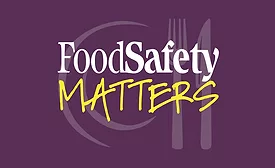Home » Keywords: » regulation
Items Tagged with 'regulation'
ARTICLES
FSMA Update for 2018
The next set of deadlines for the Food Safety Modernization Act concentrate on prevention throughout the whole supply chain.
January 22, 2018
FDA announces ‘enforcement discretion’ for specific FSMA regulations
Although FDA has temporarily relaxed some specific rules, processors are not necessarily off the hook, and may want to contact their food safety consultants.
January 8, 2018
Never miss the latest news and trends driving the food safety industry
eNewsletter | Website | eMagazine
JOIN TODAY!Copyright ©2025. All Rights Reserved BNP Media.
Design, CMS, Hosting & Web Development :: ePublishing











